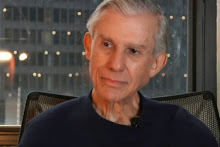The United Nations: An imperial tool

Headquartered in New York with offices in Geneva, Vienna, The Hague, and Nairobi, the UN is supposed to be an intergovernmental organization that champions peace, opposes war, and represents the rights, interests, and welfare of all nations and people everywhere equitably.
The UN secretary-general and other key officials ignore U.S./NATO/Israeli aggression, state terror, and other high crimes of war and against humanityEstablished in 1945 to prevent the scourge of another devastating global war, the world body was largely co-opted to serve U.S.-led Western interests. Its secretary-general and other key officials are installed by Washington with input from its imperial partners.
Instead of pursuing a new era of world peace and stability, endless wars by hot and other means raged with no end of them in prospect since establishment of the world body. Instead of adhering to UN Charter principles, its secretariat, other organs, and key departments consistently breach them. Instead of opposing U.S.-led aggression, key UN officials support it by failing to denounce what no one should be silent about. Instead of supporting victims of aggression, they tacitly back perpetrators by failing to demand accountability for their high crimes. Instead of demanding respect for the sovereign rights of all nations, free from foreign interference according to international law, the UN secretary-general and other key officials ignore U.S./NATO/Israeli aggression, state terror, and other high crimes of war and against humanity — tacitly supporting what demands condemnation.
When established at the end of WW II, it was hoped that the UN would succeed by learning from failures of the League of Nations. Instead, it compounded them, notably by failing to support the rights of independent nations unwilling to sacrifice their sovereignty to a higher power in Washington, Brussels, or Tel Aviv. The UN consistently supports powerful interests over peace, equity, justice, and the rule of law — abandoning its own charter principles it breaches time and again by its actions.
Aggrieved millions have no ally at the UN headquarters or its satellite branches. Imperial USA and its partners are free to bludgeon, exploit, and otherwise abuse them with impunity. If the world body was a nation, it would be a failed state, its principles breached, ordinary people everywhere betrayed. Its affirmation of human rights and dignity, of equal rights for all, of promoting social progress, tolerance, peace, stability, security, and economic advancement are empty words. The world body’s legacy reflects failure even though UNICEF,
The UN consistently supports powerful interests over peace, equity, justice, and the rule of law.UNESCO, and other agencies at times provide aid in areas of health, education, food assistance, refugees, and social development. It's never enough, timely, or with resolve to support troubled people adequately in times of need. It’s done nothing to beat swords into plowshares, its primary mandate over all others, along with upholding the rule of law.
Time and again, the UN fails to challenge U.S.-led Western and Israeli interests — even when the rule of law is breached, notably not when ordinary people are grievously harmed. Instead of upholding UN Charter principles, the world body is guilty of breaching them time and again. If its operations were shut down, its staff released to seek other employment, its facilities used for other purposes, the state of the world would be largely unchanged.
Its epitaph would read something like the UN never really tried to make a difference, to improve the state of the world for everyone. Its secretary-general and other key officials just pretend to support charter ideals. They devote most world body resources and their energy to serving powerful interests over everyone else. Given how it operates, it won’t be missed if shuts down sine die with no intention to resume
Stephen Lendman is the American award-winning author, syndicated columnist and Research Associate of the Centre for Research on Globalization (CRG)
Leave a Comment